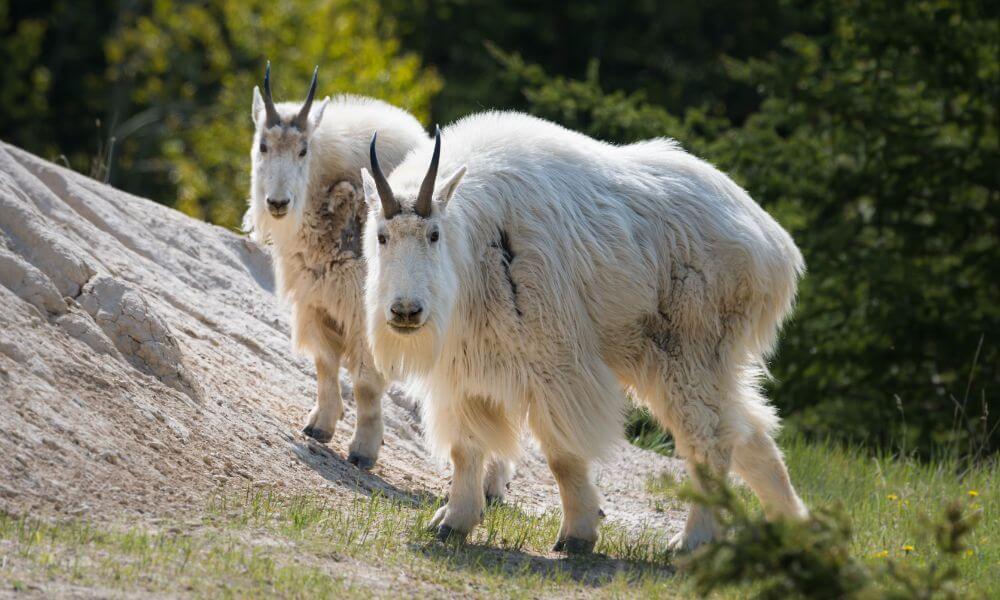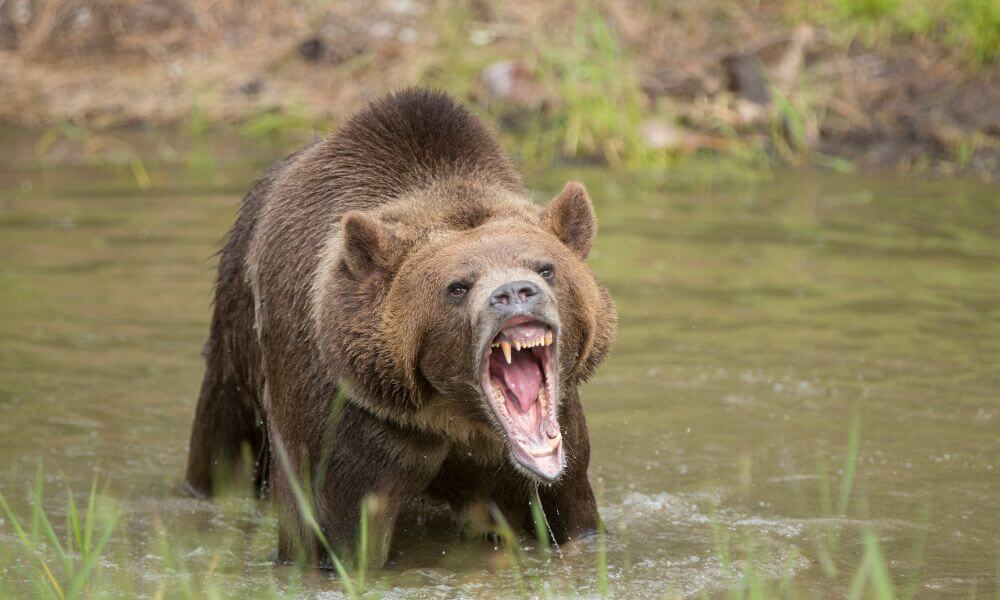Mountain goats are well adapted to their environments and eat virtually any kind of vegetation they can find.
Indeed, living in the mountains provides a number of advantages to their diets, because there is very little competition for the things they eat up there.
Let’s find out more.

What foods do mountain goats eat?
They will largely eat just about any vegetation they can find.
Most commonly they are observed eating the leaves and branches from shrubs that grow low to the ground.
These shrubs provide nutritional leaves and are virtually evergreen in many cases, providing for the goats year-round.
Ferns are also a great source of food.
Hardy vegetation like ferns can grow pretty much anywhere, so they are always reliably found in the mountains.
They might have to eat quite a lot, but it’s always available.
They may need to travel to slightly lower elevations, but they can also find grasses to eat.
Grasses are abundant and again provide a great source of endless food.
Grasses are also extremely hardy, making them great for mountain-dwelling animals.
They also eat both deciduous and coniferous trees.
Tree bark is something of a last resort, but they can and will eat it.
But they do have to move around depending on the weather.
There will be less available food the higher up they go into the winter.
What they tend to do is follow all the new growth up the mountain side during the spring and move on to somewhere with better available food during the winter.
Plant matter, then, is what goats eat.
They can find it when ever they need it, and living in the mountains means there aren’t other large herbivores competing with the goats for the plant matter.
If push came to shove, though, could a goat be a carnivore?
Is a mountain goat a carnivore?
No, mountain goats are not carnivores in any way.
Their digestive apparatus is set up to deal only with vegetation, and nothing else.
They have no capacity whatsoever for eating meat, not to mention no ability to hunt animals.
Even were they to scavenge, they lack the strong canines that are needed to tear flesh.
Mountain goats are herbivores.
Carnivores, by and large, have a very complex gut biome.
Microbes inhabit their guts and help with the processing of meat.
Mountain goats have rumens for digesting simple plant matters, and no ability to break down meat.
A goat would starve to death before it ate meat.
Can you feed mountain goats?
No, you should not feed mountain goats.
They are wild animals, and you ought to leave them alone.
For one thing, they’re incredibly dangerous.
A wild mountain goat, especially a buck, could easily react violently to your approach.
Their impressive horns could cause you serious injuries, even if you are offering them food.
You really shouldn’t feed wild animals where possible.
They should be getting the food they need from their environment, and you don’t know what you might be introducing into their system that they can’t handle.
But if nothing else puts you off, just remember the potential dangers of trying to get close enough to a mountain goat to feed it.
They are not afraid to use their horns!
What is a mountain goat’s biggest predator?
It depends on the area, as mountain goats do live in a variety of places.
Generally, though, they are at threat from bears, wolves, and mountain lions—or pumas.
Grizzly bears often inhabit high altitudes, and if they can find mountain goats in a vulnerable position, then they won’t hesitate to go after them.

Packs of wolves are known to hunt mountain goats, although this can be a bit trickier due to the way wolves hunt.
Wolves prefer to chase their prey over a long distance and tire them out, until they can eventually pounce.
Mountain goats stand a higher chance of finding an opportunity to escape, as they are much more nimble climbers than wolves.
The wolves are more likely to lose the mountain goats.
Pumas, on the other hand, attack swiftly, and hunt as ambush predators.
If they are careful enough to approach close enough to the goat without being seen, they can pounce and bring the goat down.
They still have to be extremely careful of falling off, though, and indeed of preventing the goat from falling off—your prey is no good dashed against a mountainside.
Very little is off the menu for mountain goats in terms of the vegetation and plant matter that grows in their home environments.
They aren’t carnivores, but they don’t need to be—they can eat everything from roots, to leaves, to tree bark.
They don’t want for food in their environment, because very little else competes with them to eat it.
